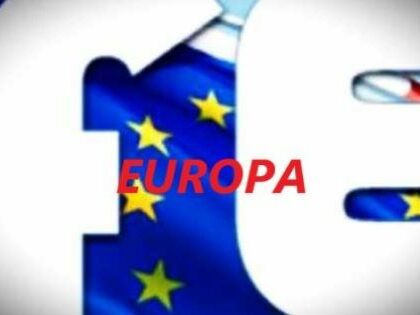European Disability Card, interview with Mr. Marek Plura (EPP Group)
Free movement of people in Europe is a primary right, guaranteed by the basic principles of European Union. Despite the efforts to commit to improving these policies, nowadays, people with disabilities are those who benefit less than other European citizens. This mainly depends by differences in law amongst the member states regarding the recognition or what constitutes disability status, followed by the inability to access these services they should be entitled to in their home countries.
On 30 June, 2015 a seminar was held at The European Parliament in Brussels: Towards a barrier-free Europe – the European Disability Card, on the initiative of Marek Plura, Polish MEP for the EPP Group. Mr. Plura is co-chairman of the Disability Intergroup, member of the Committees on Employment and Social Affairs, Transport and Tourism. Among the speakers was Marianne Thyssen, European Commissioner for Employment, Social Affairs, Skills and Mobility of Workers, who announced in her keynote speech the EU’s decision to launch the European Disability Card project before the end of this summer.
This brand new system aims to acknowledge the condition of disability status by an official document approved on an European level, and to facilitate travelling to other member states for persons with disabilities; which will allow them to receive the same services in the fields of transport, culture, sport and leisure while abroad using the European Disability Card. This card will be graphically designed, based on the current disability cards already in use, while incorporating the successful model of the European Parking Card (the EU standardized model for disabled persons to use certain parking facilities in every European country).
 We spoke to Marek Plura regarding the results of the seminar, and the current conditions of people with disabilities within Europe. As a proactive and determined politician, Mr. Plura has focused his efforts to ameliorate the welfare and social recognition of the disabled. He has also been honoured by the Order of the Smile, an international award given to people distinguished in their activities and contributions to the care and happiness of children.
We spoke to Marek Plura regarding the results of the seminar, and the current conditions of people with disabilities within Europe. As a proactive and determined politician, Mr. Plura has focused his efforts to ameliorate the welfare and social recognition of the disabled. He has also been honoured by the Order of the Smile, an international award given to people distinguished in their activities and contributions to the care and happiness of children.
What are the main innovations and practical benefits of the introduction of the European Disability Card?
The European Disability Card will aim to explore the possibility of reducing the existing barriers and to increase the mobility of persons with disabilities within the European Union. In the majority of Member States, persons with disabilities are entitled to different kinds of privileges; nevertheless, they are confronted with many burdens when travelling throughout the EU, due to diverse systems of documents recognition, confirming their disabilities. Implementation of the Card (following the successful example of the European Parking Card) would improve the situation of many Europeans, making their disability entitlements more transparent for member state authorities to recognise. The idea is that every country introduces their own regulatory system and procedures. Maybe local authorities or even private companies will follow in their example. The most important point is that the cardholder will be visible.
Do you believe that current European strategies towards disability are adequate to guarantee social inclusion and wellbeing? What are the remaining elements needed to be addressed?
This year we conduct the review of the European Disability Strategy to countercheck the assigned actions. Unfortunately, in many areas it has occurred to not be as effective as it had been planned. During the conference that I organised on the 30th of June in the European Parliament, European Commissioner Marianne Thyssen stressed that the European Union still has to challenge the problem of the low level of employment of people with disabilities. It makes only 25% of potential employees with disabilities. A similar situation is noticeable in the case of education amongst disabled people.
How will the European Union manage these social challenges?
With regards to the strategy review and very specific plans, Madam Thyssen mentioned that the European Commission has already provided financial resources to introduce improvements, especially in employment and education for people with disabilities. It will be conducted through raising the qualifications of job-seekers and supporting the job creating processes. I believe that this year, various social initiatives and the involvement of citizens with disabilities will allow us to implement the strategy review effectively. It can help us recognise the areas of the strategy that could be improved. The most important signs always come from practice, thus, we need courageous and involved people who will share their opinions. Thanks to their contribution, we will be able to publicise these opinions which will be heard by the European Commission. I personally have been involved in ameliorating the difficulties of people with disabilities for many years now. I plan to continue my work in this field, and on the forum of the European Parliament.






